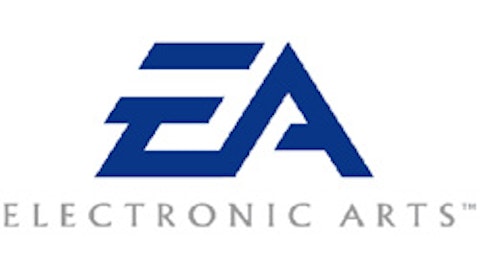A new version of the popular SimCity franchise was launched on March 5 by Electronic Arts Inc. (NASDAQ:EA), marking the first proper update to the venerable series in a decade. The game requires the player to be constantly connected to EA’s servers at all times, even when playing in single-player mode. This is an extreme form of DRM, or digital rights management, aimed at preventing piracy. However, due to the apparently unexpected loads on the servers, the launch of the game was a complete disaster. People who bought the game couldn’t download it. Once they did download it they couldn’t connect. Servers were busy or simply not working. On top of that, in-game bugs prevented features from functioning properly and progress in the game from being saved.

People hating you is not good business, or maybe it is?
Electronic Arts Inc. (NASDAQ:EA) has managed to become arguably the least liked game company due to these types of issues. In an effort to stop piracy the company makes playing the game difficult for the very people who actually bought it. Last year competitorActivision Blizzard, Inc. (NASDAQ:ATVI) ran into similar problems with the launch of Diablo III – servers were overloaded, causing many players to be unable to play the game that they had just paid for. This should have served as a lesson for EA, but SimCity’s launch was actually worse.
The question is, does any of this matter? People are still buying the game, it seems, and SimCity will likely go on to be a hit. The negative publicity is certainly not a good thing, but EA is no stranger to that. EA owns many very popular franchises, and most people will keep buying those games regardless of EA’s reputation. The bungled launch of Diablo III didn’t even put a dent into Activision Blizzard, Inc. (NASDAQ:ATVI)’s results: both revenue and earnings grew in 2012. Diablo III has sold over 3 million copies worldwide even after the horrible launch, meaning that many gamers are quick to forgive.
A recent success for Electronic Arts Inc. (NASDAQ:EA) has been Real Racing 3, a mobile game which operates under the freemium model, where the game itself is free but in-game items cost real money. Zynga Inc (NASDAQ:ZNGA) relies heavily on this model, but has seen profitability plummet in recent years as its stock price fell off a cliff. Whether this is due to the nature of the freemium model or simply due to poor management at Zynga remains unclear. Zynga is betting its future on online gambling, and with New Jersey recently enacting internet gambling legislation the market is set to grow substantially. If Zynga can capture even a small part of this market then the company could see success again. Competition, however, will undoubtedly be fierce.
Even as gamers shun them, EA will be successful
Ultimately EA is trying to make money, not get people to like them. If a minority of gamers refuse to buy EA products it won’t really affect the company all that much, especially when it comes to casual freemium games like Real Racing 3. In the most recently reported quarter EA saw revenue decrease year-over-year, but earnings improved to $-0.15, compared to $-0.62 for the same period last year. Analysts expect full year revenues to be $0.95 for the fiscal year ending in March, which puts the P/E ratio at just about 20 based on a share price around $19. The average analyst estimate for 5-year earnings growth is 13.1%, making the the P/E ratio seem a bit high. The stock actually traded as low as $12 per share a few months ago, making for a much more reasonable P/E ratio of 12.6.
The launch of new gaming consoles from Sony and Microsoft coming within the next year should help EA as well, possibly putting a stop to the recent slide in video game sales.
The bottom line
EA has managed to make a lot of people upset with the launch of SimCity, but this shouldn’t affect the big picture all that much. People have disliked Electronic Arts Inc. (NASDAQ:EA) for many years, and yet its games keep selling. At the current price the stock seems a bit too rich, so I would wait for a pullback before considering a purchase. Perhaps the ongoing SimCity saga will drive prices down, although that hasn’t seemed to happen yet. Regardless, it will take a lot more than a single botched launch to down this gaming giant.
The article Does This Gaming Disaster Matter? originally appeared on Fool.com and is written by Timothy Green.
Copyright © 1995 – 2013 The Motley Fool, LLC. All rights reserved. The Motley Fool has a disclosure policy.

